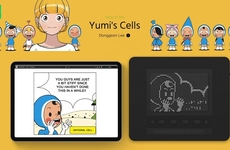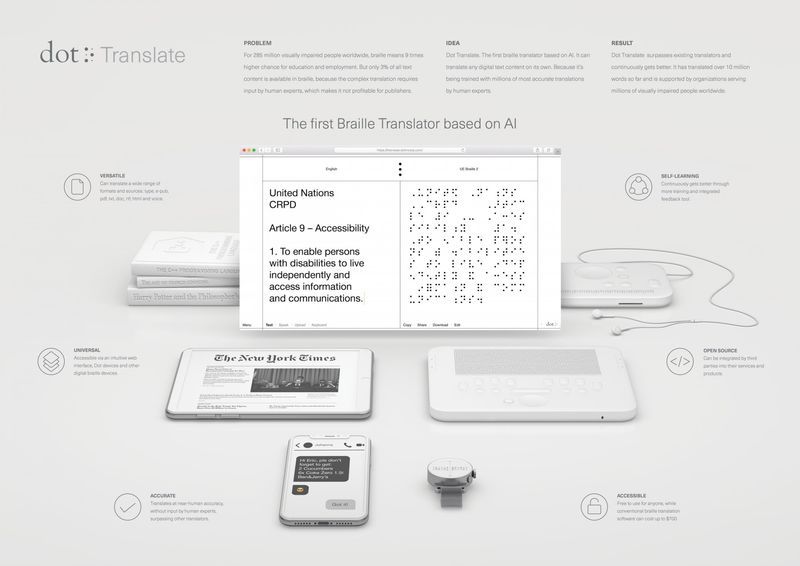
Dot Translate is a First-of-Its-Kind Braille Translator Based on AI
Laura McQuarrie — September 27, 2019 — Lifestyle
References: translate.dotincorp & adsoftheworld
Dot Translate sets itself apart as the first braille translator based on artificial intelligence and it boasts the ability to translate any digital text to braille with incredible accuracy. The AI-based braille translator is able to boast such near-human accuracy because it is being trained with millions of human translation samples.
The braille translator can be accessed via an intuitive web interface, as well as Dot devices and other digital braille devices. When it comes to translating, the system is capable of working with a variety of formats, including type, PDFs, html and even voice input.
Amazingly, unlike most expensive braille translation programs, Dot Translate is completely free to use—and important to the machine learning model to support its continued learning.
The braille translator can be accessed via an intuitive web interface, as well as Dot devices and other digital braille devices. When it comes to translating, the system is capable of working with a variety of formats, including type, PDFs, html and even voice input.
Amazingly, unlike most expensive braille translation programs, Dot Translate is completely free to use—and important to the machine learning model to support its continued learning.
Trend Themes
1. AI-based Braille Translators - Disruptive innovation opportunity: Develop AI algorithms to improve the accuracy and speed of braille translation for the visually impaired.
2. Intuitive Web Interfaces for Braille Translation - Disruptive innovation opportunity: Create user-friendly web interfaces that allow easy and efficient braille translation for individuals with visual impairments.
3. Training Machine Learning Models for Braille Translation - Disruptive innovation opportunity: Train machine learning models with extensive human translation samples to enhance the accuracy and quality of braille translation software.
Industry Implications
1. Assistive Technology - Disruptive innovation opportunity: Design and manufacture cutting-edge braille translation devices and software to improve accessibility and independence for the visually impaired.
2. Web Development - Disruptive innovation opportunity: Develop user-friendly web interfaces with advanced accessibility features to enable seamless braille translation and dissemination of digital content.
3. Machine Learning - Disruptive innovation opportunity: Explore the use of machine learning algorithms and techniques to enhance the accuracy and efficiency of braille translation for the visually impaired.
2.1
Score
Popularity
Activity
Freshness























